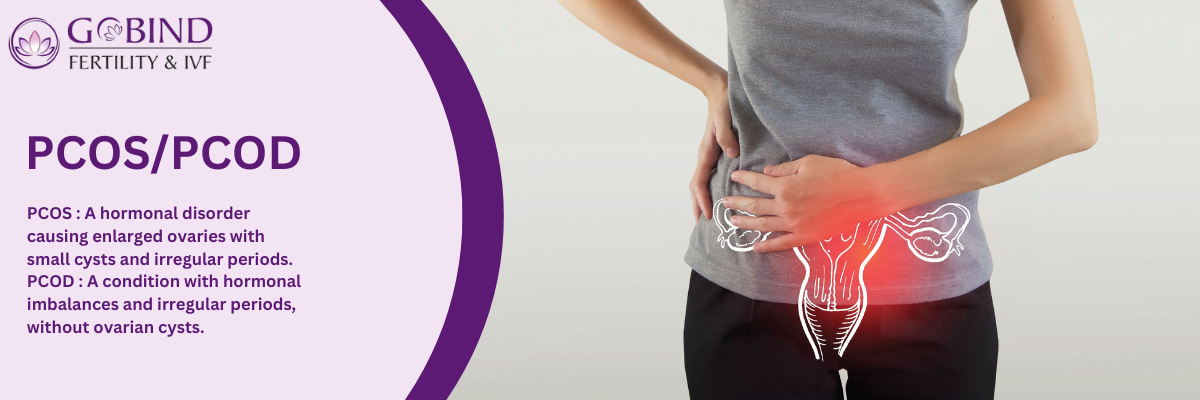

PCOS/PCOD?
PCOS is a common hormonal disorder in women, affecting ones who have not yet reached menopause and is defined by enlarged ovaries, which contain small cysts, menstrual cycle that isnt regular, and other symptoms such as excess hair growth, acne, and weight gain.
PCOD is a condition in women which seems to originate in ovaries and which is characterized by multiple little cysts round the ovaries and irregular menstrual cycles and which can lead to infertility.
Key features of PCOS/PCOD:
- Missed or irregular periods: As a result of sporadic or nonexistent ovulation.
- Excessive androgen (male hormone) production: This can cause acne, male pattern baldness, and hirsutism, or excessive hair growth, on the face, chest, and belly.
- Ovaries that produce numerous tiny, fluid-filled sacs known as cysts—essentially, immature follicles that were unable to release an egg—are referred to as polycystic ovaries.
- Insulin resistance: A lot of PCOS-affected women struggle to use insulin as it should, which can result in weight gain, diabetes, and other metabolic problems.
Other associated features:
- Obesity (especially abdominal)
- Infertility
- Depression and mood disorders
- Increased risk of endometrial cancer, cardiovascular disease, and metabolic syndrome.
Causes and Diagnosis :
The exact cause is unknown, but PCOS is thought to be related to a combination of genetic and environmental factors that disrupt normal hormone levels.
PCOS is diagnosed based on a combination of symptoms, blood tests to check hormone levels, and pelvic/transvaginal ultrasound to assess the ovaries.
Treatment:
Treatment aims to manage symptoms and prevent long-term complications. Options may include:
- Lifestyle changes (weight loss, exercise)
- Oral contraceptives to regulate menstrual cycles
- Insulin-sensitizing drugs like metformin
- Anti-androgen medications to reduce excess hair growth
- Fertility treatments for those trying to conceive
PCOS is a complex condition that requires a multidisciplinary approach involving gynecologists, endocrinologists, and other specialists to manage reproductive, metabolic, and psychological aspects effectively.

















